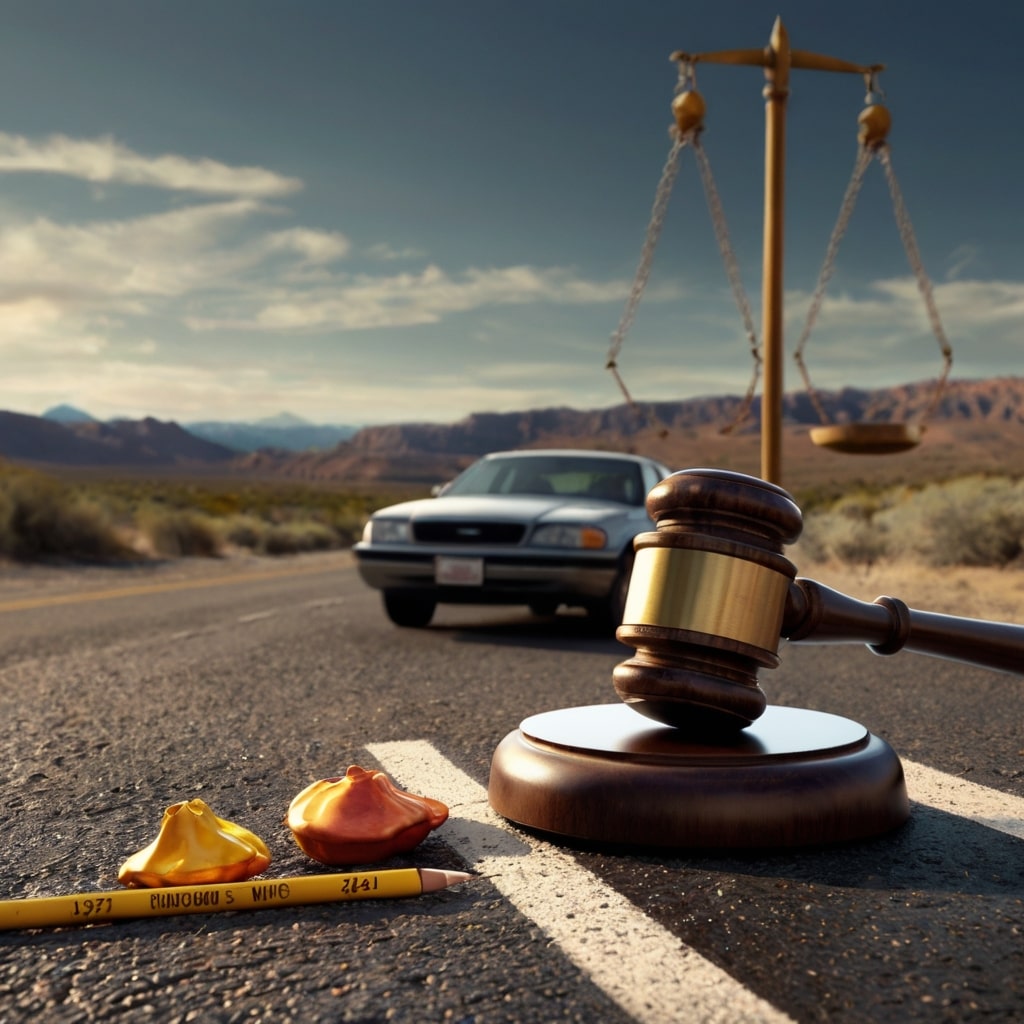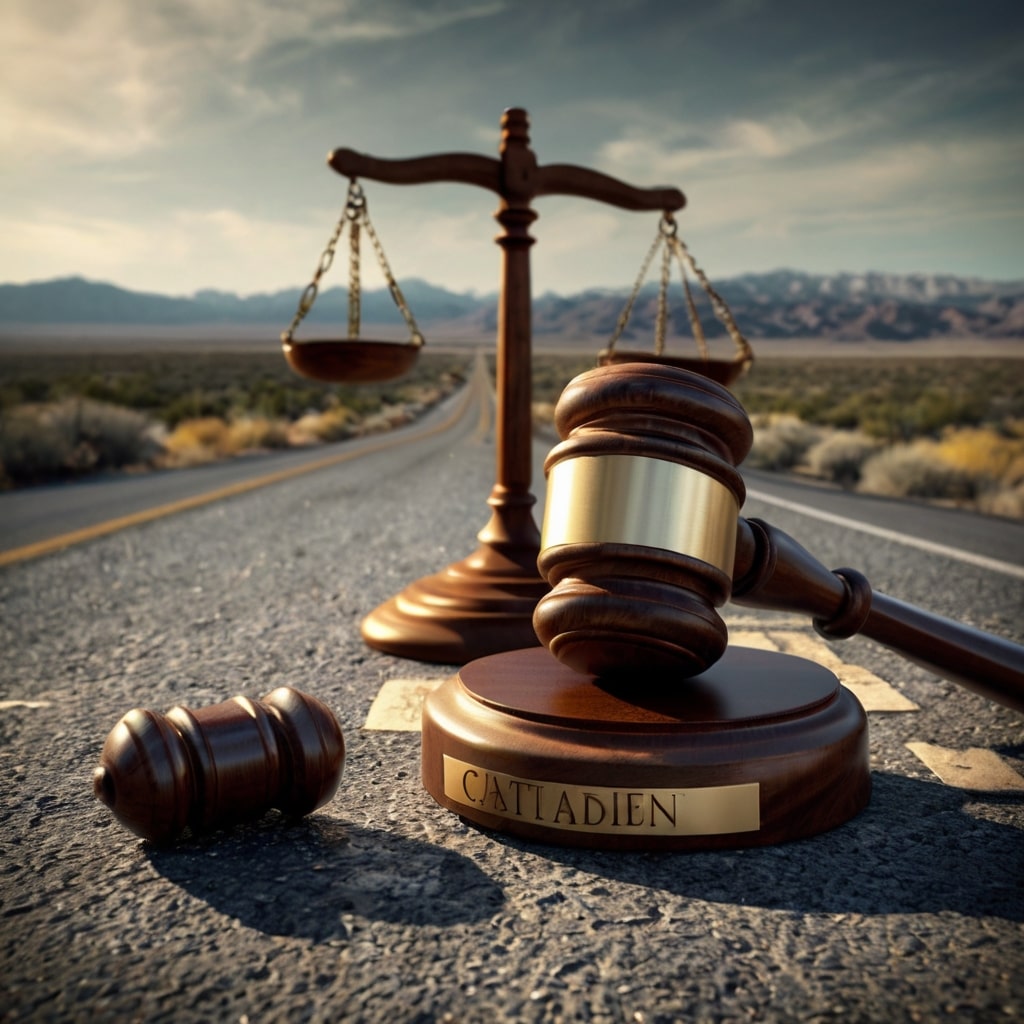If you’re driving on Utah’s roads, chances are high that you’ll be involved in an accident at some point.
It can happen in a split second – another driver runs a red light, someone hits your bike while texting and driving…and before you know it, your life has been turned upside down.
While the road to recovery is long and arduous for many victims of negligent injuries in Utah, there’s something that can make all the difference: understanding your rights.
You deserve fair compensation for medical expenses, lost wages, and more – don’t let insurance companies or at-fault parties take advantage of you.
That’s why we’re here today with a comprehensive guide on Utah accident laws – giving you the knowledge you need to stand up for yourself after a traumatic event.
The Importance of Understanding Your Rights After an Accident
Let’s break down why understanding your rights is crucial after an accident in Utah. When you’re dealing with the aftermath of a crash, it can be overwhelming to navigate the legal system alone.
In many cases, accidents are caused by negligence – whether it’s another driver not following traffic laws or reckless behavior on the part of property owners. But what does this mean for your case? Simply put, understanding your rights means recognizing that you have a legitimate claim to compensation for any damages or losses incurred as a direct result of someone else’s carelessness.
This can include medical expenses, lost wages, and even pain and suffering caused by the accident. Knowing your rights gives you the power to take control of your situation and seek justice against those responsible.

Moreover, it allows you to make informed decisions about how to move forward with your claim – whether that means pursuing a settlement or taking your case to court. Without this understanding, you may find yourself at a disadvantage when dealing with insurance companies or legal representatives who are working against your best interests.
In short, knowing what you’re entitled to and why is key in achieving fair compensation for the harm caused by an accident in Utah.
What is Negligence? A Guide to Utah’s Definition and Laws
Negligence in Utah: A Breach of Duty Owed
In Utah, negligence is considered a breach of duty owed by one party to another, and it must be proven in order for you to receive compensation.
A Definition of Negligence in Utah
Negligence refers to the failure to exercise due care or diligence in your actions or omissions that causes harm to another person. This can include things like failing to maintain property, ignoring safety protocols, or driving recklessly.
Utah’s Laws Regarding Negligence
In Utah, negligence is governed by specific laws and statues. For instance, Utah Code Ann. §78-14-8 states that a property owner has a duty to exercise reasonable care in the maintenance of their premises to prevent injuries to others who may use them (Utah Code Ann. §78-14-8). Similarly, Utah courts have established case law regarding negligent behavior, such as reckless driving or failure to maintain equipment.
Examples of Negligence
For instance, if someone is texting while driving and crashes into you, causing serious injury, they may be considered negligent. Similarly, if a property owner fails to maintain their sidewalk and you slip and fall as a result, they could be held liable for negligence.
Understanding Utah’s Laws Regarding Negligence
If you’ve been injured due to someone else’s negligence in the Beehive State, understanding these laws is essential for seeking fair compensation. An experienced attorney can help guide you through the legal process and ensure that your rights are protected.
Identifying the At-Fault Party in a Car Crash or Other Injury-Related Incident
If you’ve been injured in an accident or other incident in Utah due to someone else’s negligence, understanding your right to fair compensation is crucial. Let’s explore how Utah law protects victims’ rights and what steps you can take to secure the compensation you deserve.
To identify the at-fault party and determine potential damages, gather essential information about the incident:
* Take photos and videos of any damage
* Collect witness statements (if applicable)
* Obtain police reports or accident details from the scene
* Document your injuries, medical treatment received so far, and lost wages due to inability to work
Next, determine who is responsible for the incident. This includes:
* Identifying other drivers involved in a car crash and their insurance provider
* Researching liability coverage of entities that contributed to your injury (e.g., property owners)
It’s also vital to understand Utah law regarding damages for negligent injuries. Familiarize yourself with statutes of limitations, notice periods, and deadlines for filing claims. This knowledge can help you make informed decisions about your legal options.
By following these steps, you’ll be better equipped to navigate Utah’s laws on compensation for victims of negligent injuries. Remember that seeking professional guidance from an experienced attorney in personal injury law can provide invaluable assistance throughout your journey towards fair reparation.

Gathering Evidence to Support Your Claim for Compensation
According to recent data from the National Highway Traffic Safety Administration (NHTSA), over 3 million people are injured each year in car accidents alone. In Utah, victims of negligent injuries have a right to compensation under state law. To build a strong case and secure fair compensation, it’s essential to gather thorough evidence as soon as possible after an accident.
As you begin the process of collecting evidence, remember that documenting details from the scene can be crucial in establishing fault and liability later on. For example, if you were involved in a car crash, capture images of the vehicle’s position, road conditions, weather, and any visible injuries. But documentation isn’t limited to just car accidents – take photographs and videos at construction sites too, including equipment malfunctions or hazardous materials spills. In slip-and-fall cases, document slippery surfaces or uneven walkways that may have contributed to your injury.
Keep in mind that the evidence you gather will be used to demonstrate the extent of your harm later on. That’s why it’s crucial to keep an accurate record of medical treatment received for your injuries. This includes dates, times, and details of doctor’s appointments, test results, prescription medications taken, and any other treatments administered. For instance, if you suffered a traumatic brain injury after being struck by a falling object at work, document the initial diagnosis and subsequent rehabilitation progress to demonstrate the ongoing impact on your life.
By collecting thorough evidence as early as possible after an accident, you’ll be better equipped to build a strong case for compensation under Utah’s negligence laws. Don’t underestimate the importance of gathering these details – they can make a significant difference in determining the outcome of your claim. For example, in a car accident case involving injuries worth $100,000 to $500,000 or more, accurate documentation of the scene and subsequent medical treatment can make all the difference in securing fair compensation. By following these steps yourself, you’ll be on track to secure the financial recovery you deserve for your injury claim.
The Role of Police Reports and Medical Documents in Accident Cases
Gathering crucial evidence is essential for accident victims in Utah seeking compensation.
When collecting information about the accident scene and any injuries sustained, start by obtaining a copy of the police report. This document provides detailed information on what happened during the incident, including witness statements and descriptions of the scene. Make sure to also get copies of your medical records from doctors, hospitals, or clinics where you received treatment for your injuries.
These documents can serve as proof that an injury occurred and was caused by someone else’s negligence. Medical records are especially important because they provide detailed information about your diagnosis, treatments, medications prescribed, tests performed, and any future appointments needed. When speaking with your doctor or other medical professionals involved in your treatment plan, make sure to ask for a written summary of what happened during each visit.
Organize these documents by keeping them all in an organized binder or folder. By having this crucial evidence at hand, you’ll be well-prepared to build a strong case with legal representation that will help protect your right to compensation for any negligent injuries sustained. Don’t let your medical records gather dust – organize them like you do with important papers!
Remember, written summaries from healthcare providers are crucial for building a strong case. By asking for these detailed reports and keeping track of all documents related to your injury, you’ll be able to demonstrate the extent of your suffering and prove that someone else’s negligence was responsible for it. Consult with an attorney if you have questions about gathering evidence or need help navigating the process.
Understanding the Statute of Limitations for Filing an Accident Claim in Utah
Accidents caused by someone else’s negligence can leave a devastating financial impact on victims and their families. According to the National Highway Traffic Safety Administration, in 2020, there were over 6 million police-reported crashes in the United States alone, resulting in more than 3 million injuries.
Understanding Utah’s accident laws is crucial for protecting your rights as a victim of negligence. The statute of limitations for filing an accident claim varies depending on several factors:
The type of injury or death caused by the negligent act: For instance, if you’re filing a personal injury claim due to injuries from an accident, you typically have four years from the date of the incident to file your lawsuit (Utah Code Ann. § 78B-2a-301). However, this timeframe may be shorter for certain types of claims.
The age of the injured person: In Utah, medical malpractice cases usually have a two-year statute of limitations (Utah Code Ann. § 78A-14-25), while minors typically have four years from their 18th birthday to file their claim.
To avoid missing the window for seeking justice and compensation, it’s essential for victims to consult with an experienced lawyer who can help guide them through this process. A knowledgeable attorney will assess all relevant factors and provide a clear understanding of the statute of limitations applicable in your case, including reviewing documentation such as police reports, medical records, or witness statements.
By working closely with their legal representative, victims can negotiate settlements with insurance companies and ensure that their rights are protected throughout the claims process. By staying informed about Utah’s accident laws and adhering to the relevant statute of limitations for filing an accident claim in Utah, you can take a crucial step towards seeking justice and securing fair compensation for your injuries.
How Insurance Companies Try to Undermine Your Claims and What You Can Do About It
In Utah, victims of negligent injuries often find themselves at odds with insurance companies that use tactics to undermine their compensation claims.
Insurance companies may dispute fault or downplay the severity of your injuries, using manipulative techniques like claiming that your initial report exaggerated the extent of your harm. For instance, they might say that you’re not as badly hurt as you claimed in your first medical evaluation. This can lead to delayed or denied payment for legitimate claims.
Lowball settlement offers are another common tactic used by insurance companies to minimize their financial liability. They may claim that your medical bills are inflated or argue that the injury has had a minimal impact on your daily life, despite evidence to the contrary.
In some cases, insurance companies may even attempt to discredit you as a witness or fabricate evidence to support their position. This can be a frustrating and demoralizing experience for innocent victims who just want fair compensation for their injuries.
However, there’s good news – being aware of these tactics allows you to prepare and counter them effectively. To protect yourself from unfair practices, it’s crucial to document every aspect of your injury, including medical records and witness statements. When communicating with the insurance company, be clear about your demands for compensation and avoid making any concessions without consulting a lawyer.
By understanding Utah accident laws and anticipating common tactics used by insurance companies to undermine claims, you’ll be better equipped to secure the compensation you deserve for your negligent injuries.
Building a Strong Case with Witness Testimonies, Photos, and Other Evidence
Witnesses can play a critical role in helping you build a strong case. Here’s why: if they witnessed another driver’s reckless behavior leading up to your accident, their testimony could be invaluable in demonstrating fault.
For instance, imagine that a pedestrian was walking across the street when your car struck theirs. Their eyewitness account of what happened before and during the collision – including how quickly you came to a stop after being hit – would provide crucial insight into who’s responsible for causing the accident.
Similarly, photographs of damage to your vehicle or injuries you suffered could also play a significant role in establishing liability. By gathering this kind of evidence, our experts can help demonstrate not only what happened but why it was someone else’s fault.
Don’t worry if all this sounds like a lot to take in – we’ve got you covered. Gathering the right evidence is complex, and it requires expertise that many people just don’t have. But with our guidance, you’ll be better equipped to build a strong case that gets you the compensation you deserve.
Other types of evidence that can strengthen your claim include police reports and accident scene documentation, medical records detailing the extent and impact of your injuries, and repair estimates for any damaged property – such as your vehicle or personal belongings. By understanding how these different pieces fit together, our experts can help construct a compelling narrative that ultimately leads to a more successful outcome in your accident claim.
Calculating Damages and Financial Losses After an Injury or Death Caused by Negligence
When you’re injured in an accident caused by someone else’s negligence, it can have devastating financial consequences. In Utah, understanding your rights as a victim and how to calculate damages is crucial to seeking fair compensation.
Calculating financial losses after an injury or death involves evaluating the extent of harm suffered. This includes medical expenses such as physical therapy sessions for spinal cord injuries that can cost up to $10,000 per month; lost income from missing work due to the accident, which could mean a loss of potential earning capacity in the future; and pain and suffering caused by permanent injuries or chronic conditions like post-traumatic stress disorder (PTSD), with some victims experiencing symptoms for years after the initial injury.
Additionally, emotional distress such as grief after a loved one’s passing can also be taken into account. This includes emotional trauma experienced during the injury or death itself, loss of companionship and love due to a deceased family member, and mental health treatment costs for coping with grief.
By knowing what you are entitled to under Utah accident laws and calculating your financial losses, you can get the justice and closure needed after suffering at the hands of negligence.
Preparing for Settlement Negotiations with Insurance Companies
Gathering evidence is a crucial first step in building a strong case for fair compensation.
Take photos or videos of the scene where the injury occurred to capture any relevant details, such as debris on the road or damaged property. For example, imagine you’re involved in a car accident and notice that the other driver ran a stop sign. A photo of the intersection can be crucial evidence to support your claim.
Obtain witness statements from anyone who saw what happened. This could include passengers in your vehicle, bystanders, or even security footage if available. These statements should detail exactly what they witnessed and provide context for their observations.
Keep a record of any medical treatment you receive, including doctor’s notes, prescription labels, and receipts for out-of-pocket expenses. This documentation will help to establish the extent of your injuries and the costs associated with treating them.
It’s also essential to understand Utah’s statutes of limitation, which dictate how long you have to file your claim. For instance, in personal injury cases like yours, you typically have two years from the date of injury to take legal action. Missing this deadline can result in a rejected claim or significant reduction in compensation.
To prepare for negotiations with insurance companies, it’s vital to educate yourself on Utah accident laws and your rights as an injured party. For example, familiarize yourself with Utah Code Ann. § 78-2507, which outlines the duties of a person who injures another or causes damage to property.
By gathering evidence, understanding Utah’s statutes of limitation, and educating yourself on accident laws, you’ll be well-prepared to negotiate a fair settlement with insurance companies. With the right information at your fingertips, you can confidently advocate for the compensation you deserve after suffering negligent injuries in Utah.
What to Expect During the Litigation Process in Utah Courts
Your journey towards justice and fair compensation is about to unfold.
Understanding your rights as a victim of negligent injuries can be overwhelming, but you don’t have to face it alone.
A skilled attorney will guide you through each step of the litigation process, ensuring that your voice is heard and your needs are met.
From gathering evidence and building a case to negotiating with insurance companies and representing you in court, they’ll be by your side every step of the way.
By having an expert on your team, you can focus on what matters most – healing from your injuries while also holding negligent parties accountable for their actions.
Take control of your future today. Reach out to a reputable law firm and let them help you fight for the justice and compensation you deserve.
